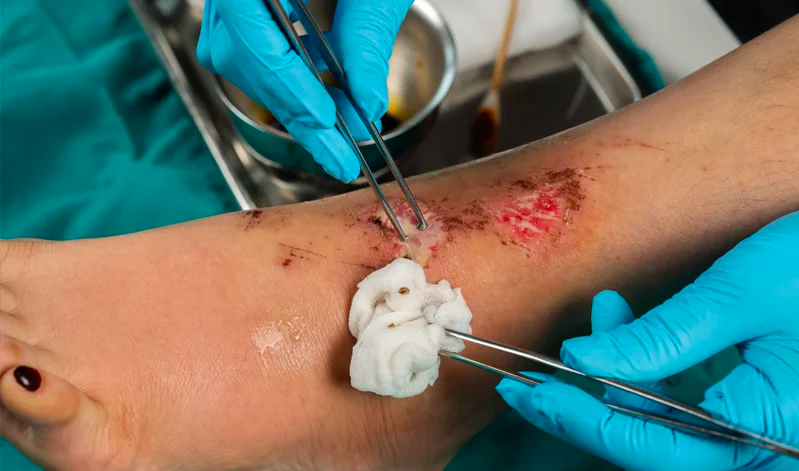Step to Work | Systems that shape everyday practice



Systems that shape everyday practice
By the end of the session you should be able to:
- recognise the systems that shape everyday practice
- describe how everyday practice of allied health professionals (AHPs) is part of, and shaped by, complex systems
In this activity, you will develop your insights into one of the systems that is important to your new role. It might be one of the examples listed above, such as a patient or clinical pathway that you support part of.
Document your answers to the following task in the worksheet. The exercise should take about 15 minutes to complete.
4a task: developing insight into a complex system within your role
A simple technique is to make a start to visually map the system, paying attention to the different groups of people in the system, what they do and how they relate to each other. You will have used some of these ideas when developing a rich picture of a day in the life of an AHP in the session Everyday work.
To help you with your analysis:
- talk to a colleague, preceptor, mentor or peer and ask them about their appreciation of this system
- are there any resources that you can draw on?
Now that you have begun to develop an overview of one of the complex systems within which you will work, begin to consider which aspects might have the most influence on you? The exercise should take about 10 to 20 minutes to complete.
Document your answers to the following reflection in the worksheet.
4b reflection: debriefing
Share your system description with a colleague, mentor, preceptor or peer and summarise it to them in about 5 minutes. Discuss what you have learned from developing your own system overview.
- How stable is this system? Does it generally work the same over time and for different patients? What makes it unstable?
- Where do you think the bottlenecks in the system might be?
- Are there any 'mantras' (for example, let's keep people out of hospital if we can) that reflect current policy or professional thinking and which may influence this system?
- What aspects of the system will you encounter daily and what won't you easily have sight of? What impact on your practice might this have?
Summary
- Complex systems shape everyday practice.
- Organisations are now coming together across even larger areas to form integrated care systems, partnerships of health and care organisations that plan and pay for health and care services.
- AHPs have various roles within healthcare including, but not limited to, providing a set of interventions as part of a patient clinic.
- Anaesthesia | Additional Reading | Abdominal Compa...
- Posted By eIntegrity Healthcare e-Learning
- Posted Date: 2025-03-13
- Location:Online
- This session contains a link to the BJA Education article followed by a series of self assessment multiple choice questions.<br><br>The article will open in a new window or tab depending on your browser.<br><br> CPD credits are awarded by the RCoA for the
- Anaesthesia | Additional Reading | Major obstetric...
- Posted By eIntegrity Healthcare e-Learning
- Posted Date: 2025-03-13
- Location:Online
- This session contains a link to the BJA Education article followed by a series of self assessment multiple choice questions.<br><br>The article will open in a new window or tab depending on your browser.<br><br> CPD credits are awarded by the RCoA for the
- Anaesthesia | Additional Reading | Oral Poisoning:...
- Posted By eIntegrity Healthcare e-Learning
- Posted Date: 2025-03-13
- Location:Online
- This session contains a link to the BJA Education article followed by a series of self assessment multiple choice questions.<p>The article will open in a new window or tab depending on your browser.<p>CPD credits are awarded by the RCoA for the time spent
- Anaesthesia | Additional Reading | Epilepsy in ana...
- Posted By eIntegrity Healthcare e-Learning
- Posted Date: 2025-03-13
- Location:Online
- This session contains a link to the BJA Education article followed by a series of self assessment multiple choice questions.<br><br>The article will open in a new window or tab depending on your browser.<br><br> CPD credits are awarded by the RCoA for the
- Anaesthesia | Additional Reading | Coma
- Posted By eIntegrity Healthcare e-Learning
- Posted Date: 2025-03-13
- Location:Online
- This session contains a link to the BJA Education article followed by a series of self assessment multiple choice questions.<br><br>The article will open in a new window or tab depending on your browser.<br><br> CPD credits are awarded by the RCoA for the


